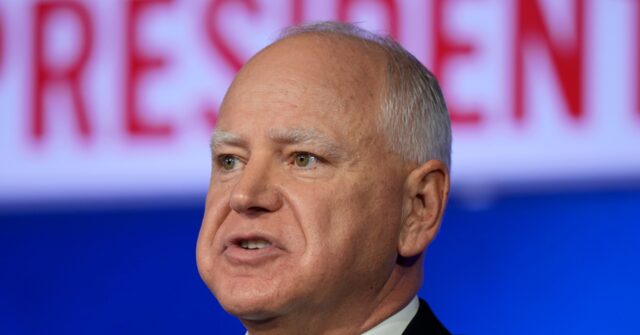During a recent vice presidential debate, Minnesota Governor Tim Walz faced criticism for his evasive response regarding the Biden-Harris administration’s alleged pressure on Facebook to limit free speech. Senator JD Vance of Ohio, who is seeking the vice presidency alongside Donald Trump, called the suppression of citizens’ voices by big tech companies the real danger to democracy. Vance asserted that Vice President Kamala Harris intended to censor individuals spreading misinformation, framing this as a significant threat to democratic integrity, one that supersedes any challenges faced in the last several decades.
Vance directly questioned Walz about whether Harris had played a role in censoring Americans during the COVID-19 crisis. Walz opted to deflect the inquiry, instead discussing the implications of the 2020 election. His lack of a straightforward answer to the pressing issue of censorship prompted Vance to label Walz’s response as a troubling sign of avoidance, emphasizing the seriousness of what he perceived as government-sanctioned silencing of dissenting views.
In a pointed rebuttal, Vance highlighted his belief that Harris aimed to leverage government authority and big tech to suppress public discourse. Walz’s retort that he did not operate Facebook and that the exchange was solely relevant in “Donald Trump’s world” did little to assuage concerns about ongoing governmental influence over free speech on digital platforms. The interaction underscored heightened tensions surrounding the intersection of political power and media regulation in the current socio-political climate.
The debate’s postscript featured remarks by Representative Anna Paulina Luna, who invoked Meta’s CEO Mark Zuckerberg’s recent acknowledgment of the FBI’s involvement in shaping content decisions on social media platforms. In correspondence with House Judiciary Committee Chairman Jim Jordan, Zuckerberg disclosed that Facebook had received warnings from the FBI about potential Russian disinformation activities related to the Biden family, thereby justifying a temporary demotion of a story concerning Hunter Biden’s laptop that was reported by the New York Post.
Zuckerberg’s admissions have reignited discussions about the balance between national security interests and the preservation of free speech online. He explained that due to the FBI’s concerns regarding misinformation, Facebook felt compelled to fact-check and suppress the story’s visibility while awaiting verification from their fact-checkers. This situation has raised fundamental questions about the extent of governmental influence over social media practices and the full implications such actions have on users’ rights to information and expression.
In summary, the debate shed light on critical issues surrounding free speech, censorship, and the role of technology companies in moderating content. The interaction between Vance and Walz served as a microcosm of the broader discourse on democratic values in the era of digital communication, spotlighting the contentious dynamics that emerge when political motivations intersect with the governance of media platforms. The ongoing scrutiny and revelations about tech companies’ actions amid governmental pressure continue to shape public perception and debates about the health of democracy in the digital age.

